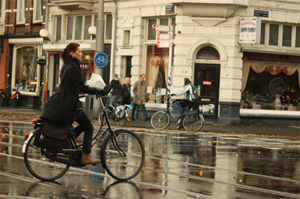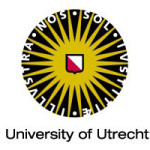On Self-evaluation, Values and Cultural Associations
On Self-views and values
The domains of investigation concerned self-evaluation (e.g., as being modest, emotional, traditional,
versus rational, modern, individualist), how strongly one endorse certain values like, personal freedom, personal satisfaction, personal development or family integrity and friendship.
On cultural networks of associations
Another very important investigation was to test whether bicultural individuals conditioned in the one or the other culture are able/willing to reproduce associations of a certain concepts as they were defined by mono-cultural default groups (see bellow). For example with what ideas you connect ‘working hard”
of In the context of Europe we have chosen to test Biculturalism among adult individuals originated from a South European culture (Greek ), but had lived at least five years in the Netherlands . Similar experiments have been conducted in the U.S.A. testing American-Asian biculturalism.
Individual factors
There were however significant variations that were explained by important individual factors, for example, how strongly one appreciate his Host society Identity (Dutch) or his origin Ethnic identity, how strongly feels conflict between the two cultures, or the strategy one adopt towards the host culture (e.g., integrate, assimilate, separate or marginilise self). These individuals factors can change significantly the cognition and behavior patterns and even produce ‘reverse’ to the active culture behavior.
Default groups
Native Dutch individuals (in the Netherlands) and Greek ones (in Greece) were also employed as control groups to qualify the respond patterns of the biculturals.
Biculturals demonstrated that they are able to produce responses similar to either culture’s expectations: under the Greek cultural condition similar to the evaluations of the Greek participants in Greece and under the Dutch conditions close to the evaluations of the Dutch participants.
Project staff
Katerina Pouliasi & Maykel Verkuyten

![]() Organization: ERCOMER, Universirty of Utrecht
Organization: ERCOMER, Universirty of Utrecht
Output:
Our current workshops: We enrich our workshops with our scientific findings and set up a variety of situations so that participants can to test and train their potential multi-cultural competence in various domains
Findings of our research have been published in our scientific publications
and presented in international conferences or discussed in other organisations and universities.
Please share it with anyone you think they may be interested in that!